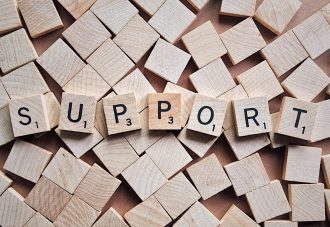2021 outcomes. COVID-19: ‘new normal’
For NGOs, coalitions and partnerships, this year has been a year of adaptation to the crisis and a partial return to live formats with vaccinated people. In 2021, many people have made their own health and well-being, rather than public activities, a clear priority. Organizations are building their institutional capacity, their ability to withstand times of crisis and to become stronger. It’s about adaptability, the ability to be flexible, live without offices in online formats and vice versa – to quickly go offline and go out. Many events took place outdoors, in direct contact with people. People also became mentally stronger. Organizations began to seriously look into why emotional burnout occurs, what contributes to it, and to deal with mental health in general.
Another outcome of 2021 is the focus on strengthening fundraising, the financial side of NGOs. People are rethinking their activities and turning them into social businesses. The work of NGOs has become professional, clear, and more useful for people.
Of course, the 2021 outcome is that online communication is flourishing. For example, storytelling. Many news channels and YouTube pages have appeared. Most of them are local projects and initiatives. They are the main priority for Ukrainian civil society.
Cultural and artistic events played an important role, which due to quarantine restrictions could not be fully implemented, but the summer of 2021 showed how many festivals have resumed their work, how many exhibitions have reopened. Such measures are already common for coalitions, but they have become a new open platform for communication with citizens, authorities and all other actors.
2022 trends
Burnout prevention.
After the all-out fight against burnout, which swept across NGOs and coalitions, I see a big challenge: learning to work on preventing it, developing emotional intelligence. Within the organization, trainings on the emotional intelligence development and psychological support will be an effective method. Organizations that can afford this will introduce the position of organizational psychologist.
Country’s defense.
The next trend will be that each organization will determine its role in the country’s defense: informing, dealing with fakes, working internally with territorial defense. This trend of increasing defense capabilities will develop next year. As we have significant information pressure in the world, there is a high probability that the conflict with the Kremlin will escalate. Civil society has always been one of the first to respond to threats from the east. Now this response will become more systematic and clearer. This will literally mean that many public activists will initiate measures to increase civil defense, and organizations will look for a niche they will take in building defense capabilities. This can take the form of an inspection of how local authorities are preparing for territorial defense, in particular. I sincerely believe that Ukrainian civil society knows and will talk about its place in the country’s defense.
‘Community’ – the watchword of 2022.
Communities will become another goal of public institutions. I do not agree with my colleagues who look at communities as a group of supporters who have to increase the sustainability of our structures with their donations. I see community as people who are engaged in the activities, where resource support is one of the mechanisms of engagement. “Community” is the key word for me in 2022, and any organization that does not work with its community, with people who care about it and build it up, is doomed to difficulties in its work. Building these communities is the trend I want to see, and I believe in it in 2022. Communities will be a hallmark of NGOs or coalitions developing their institutional capacity. This trend of developing communities around will become total and will increase the influence of civil society institutions on what they do for the country. The development of these communities as well as wider circles will be based not only on financial involvement, but also on skills, abilities, knowledge and values. It is the communication of one’s values and principles that will attract and build around organizations the group that can be called a community. I think a great example of this kind of community development is the group of supporters (people supporting a project on Patreon, for example). I see the development of such large communities around organizations dealing with inclusion, environment, urban planning in different cities of Ukraine. I think this will become a trend in 2022.




